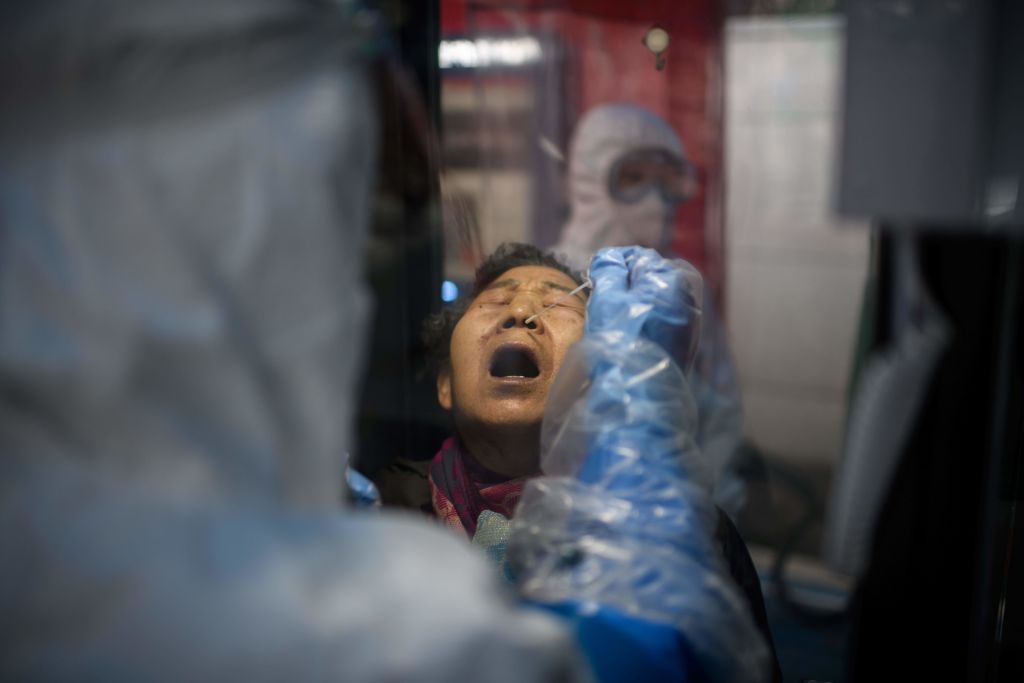COVID-19 hit South Korea and the U.S. on the same day. Here's what Korea did right.


A free daily email with the biggest news stories of the day – and the best features from TheWeek.com
You are now subscribed
Your newsletter sign-up was successful
The U.S. and South Korea both confirmed their first cases of new coronavirus on Jan. 21. South Korea's epidemic seems to have already peaked, while the U.S. is girding for public health, financial, and social crises. The key to South Korea's relative success is testing, and South Korea's aggressive testing regime — "South Korea as of Tuesday was testing up to 20,000 patients a day, more than half the total of U.S. patients who have been tested since the outbreak began," The Wall Street Journal notes — was not an accident.
On Jan. 27, with four confirmed cases in the country, "South Korean health officials summoned representatives from more than 20 medical companies from their lunar New Year celebrations to a conference room tucked inside Seoul's busy train station," where a top infectious disease official "delivered an urgent message: South Korea needed an effective test immediately to detect the novel coronavirus," Reuters reports. "He promised the companies swift regulatory approval." A week later, South Korea's Centers for Disease Control and Prevention (CDC) approved one company's diagnostic test and gave the green light to another company's test on Feb. 12.
South Korea has tested more than 290,000 people; the U.S., with about 321 million more people, has tested just 71,000, according to the COVID Tracking Project. "South Korea took a risk, releasing briskly vetted tests, then circling back later to spot check their effectiveness," Reuters reports. "With many more tests in hand, health officials were well armed to attack a fast-moving virus and aggressively track down people who may have been exposed. This testing-backed offensive helped South Korea reduce the number of new cases over a matter of weeks, serving as a model for other countries grappling with the pandemic."
The Week
Escape your echo chamber. Get the facts behind the news, plus analysis from multiple perspectives.

Sign up for The Week's Free Newsletters
From our morning news briefing to a weekly Good News Newsletter, get the best of The Week delivered directly to your inbox.
From our morning news briefing to a weekly Good News Newsletter, get the best of The Week delivered directly to your inbox.
In the U.S., the CDC had the only tests approved by the Food and Drug Administration until the FDA loosened its criteria on Feb. 29, and the CDC's first test was faulty. The FDA is now considering approving the South Korean tests as the U.S. struggles to meet demand.
South Korea's response is a testament to leadership and foresight, but it was hard-won. South Korea was hit badly by MERS in 2015 — 186 cases, more than anywhere outside the Middle East — and the government was criticized for its slow, secretive response. "We can’t ever forget the incident," Lee Sang-won at South Korea's CDC told Reuters. "It is engraved in our mind."
A free daily email with the biggest news stories of the day – and the best features from TheWeek.com
Peter has worked as a news and culture writer and editor at The Week since the site's launch in 2008. He covers politics, world affairs, religion and cultural currents. His journalism career began as a copy editor at a financial newswire and has included editorial positions at The New York Times Magazine, Facts on File, and Oregon State University.
